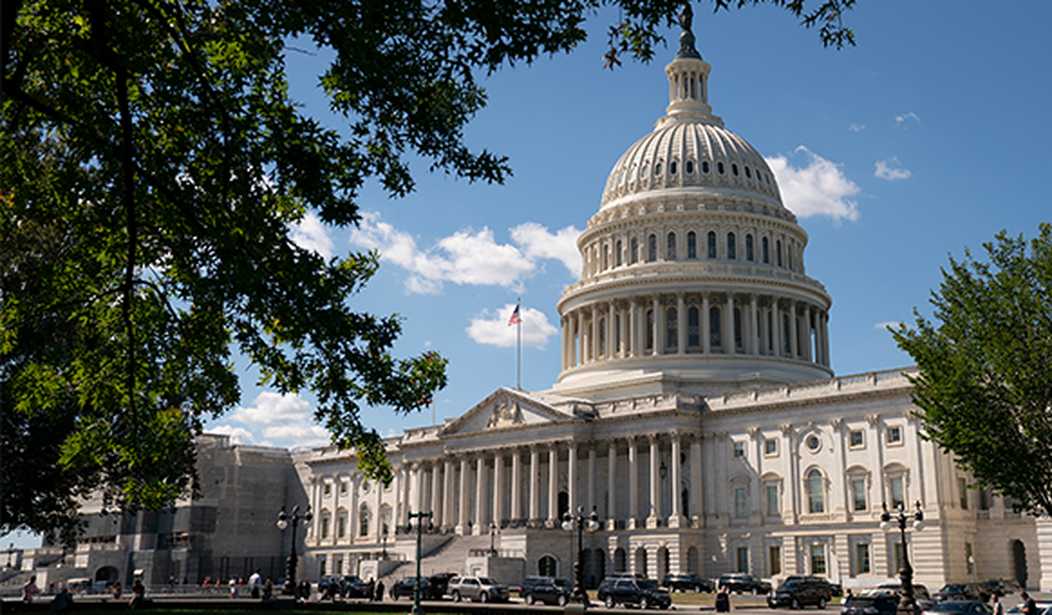Looming in the shadows of the fight over the Democrats’ $3.5 trillion budget reconciliation bill is the $1.2 trillion bipartisan infrastructure agreement. Congressional progressives insist they won’t lend their support to the latter without passage of the former. On the flip side, moderates of both parties are balking at any consideration of the $3.5 trillion package without a hard and fast assurance that infrastructure will get a vote. This proverbial game of legislative chicken is threatening to grind Congress to a halt heading into the end of the year. And, even though the $1.2 trillion bill is a pawn in a bigger game of political chess, taxpayers need to be reminded of the wasteful spending in the legislation.
While its price tag is significantly lower and it boasts supporters on both sides of the aisle, the $1.2 trillion infrastructure deal is still a reckless spending free-for-all that should hardly be considered reasonable. The legislation includes billions in funding for inefficient technologies and industries that already receive over-the-top government support. All this is on top of the fact that this is an added $1.2 trillion in spending in the midst of a potential debt crisis.
Despite being labeled an “infrastructure” bill, highways, bridges, and tunnels only account for $127 billion of the $1.2 trillion package. That is only one-tenth of the overall package and only accounts for roughly one-quarter of new spending in the bill. The rest can reasonably be described as a down payment on the “Green New Deal” and a vast expansion of the power of the federal government.
The legislation includes $15 billion for electric vehicles and electric vehicle charging stations. This money is going to support an industry that has not been able to sufficiently catch on. Despite all the subsidies and tax credits already supporting electric vehicles, study after study shows that only affluent Americans purchase these cars and no amount of tax credits have changed that. So far, only two automakers have been able to pass the threshold to phase out of these tax credits.
Recommended
Further, electric vehicle charging stations work cross-purposes. While proponents tout the environmental benefits of electric vehicles, they ignore the massive harm that constructing charging stations and batteries incurs. According to the World Economic Forum, “Raw materials needed for batteries are extracted at a high human and environmental toll. This includes, for example, child labor, health safety hazards, poverty, and pollution.” In reality, this electric vehicle money is just a giveaway to special interests and will do little to service the environment.
The bill gives the Department of Energy a $20 billion check to play investor on the taxpayer dime. The agency will have broad authority to distribute money to clean energy companies to give them a kickstart. This is a venture the agency has already undertaken and failed quite miserably. Yet, lawmakers seem to think more money will turn its track record around.
If passed, the federal government will have broad discretion over areas typically left to state, local, or private actors. It will give the federal government broad authority to set rules governing drinking water. Its $65 billion to build high-speed internet opens the door to let the government work its way into private sector enterprises. Historically, government involvement in broadband has been a colossal failure, with taxpayers left holding the bag at the end.
The bill, in its entirety, is a giveaway to special interests. According to Washington Post reports, more than 2,000 companies engaged Congress on this bill alone in the run-up to introduction and passage by the Senate. Meanwhile, the nation’s actual crumbling infrastructure remains criminally under-addressed.
There is also the debt issue. The fight over this bill – and its $3.5 trillion counterpart – comes amidst a rift over the debt ceiling with the nation in danger of defaulting. That ought to be a signal to lawmakers that reckless spending must be reined in. However, Congress has queued up this spending with questionable pay-fors. The bill delays the implementation of Medicare rules that estimates show will cost money. That is how the bill sponsors can claim they are “saving” money to cover costs. This is a shameless Washington gimmick and the bill will eventually come due, with taxpayers on the hook.
Lawmakers and observers should not let the tyranny of low expectations taint their analysis of this legislation. Just because the last two years have conditioned us to accept trillions in wasteful spending, does not make this $1.2 trillion package any more reasonable. It is still absurdly expensive, inefficient, and should be rejected by any serious policymaker.
Even compared to the $3.5 trillion reconciliation bill, $1.2 trillion is still a lot of money. If the bill is passed, it will set up more spending and less accountability.

























Join the conversation as a VIP Member